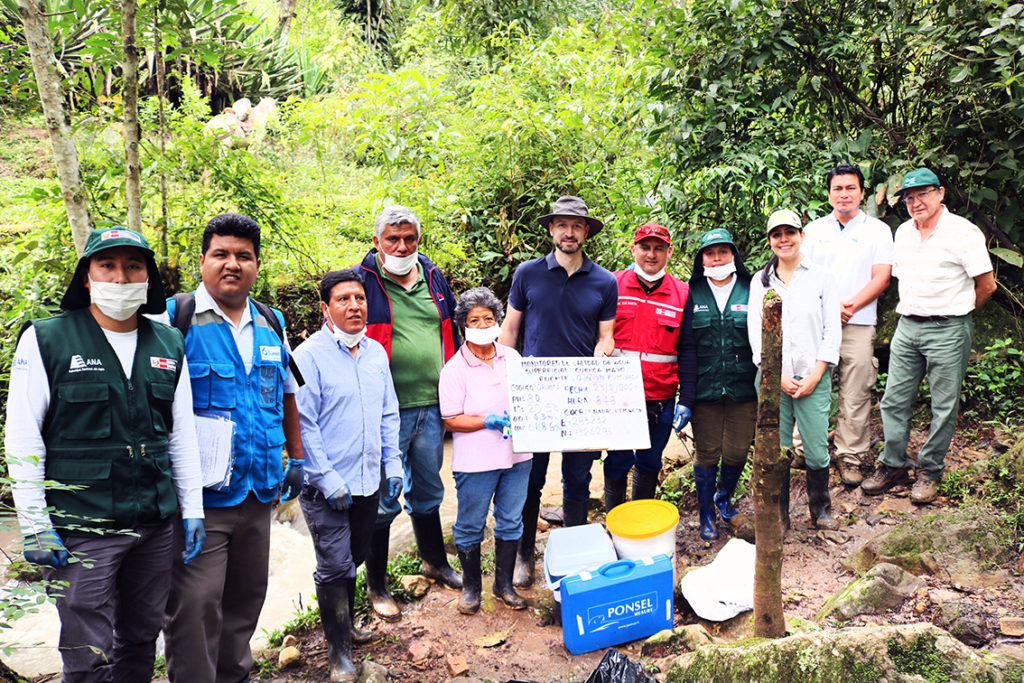In an interview with Engineer Juan Carlos Sevilla by LA-WETnet – a Cap-Net UNDP affiliated network – he highlights his experience in the “Project for Integrated Management of Water Resources in 10 basins of Peru.” Juan Carlos reflects on the change of mindset that occurred in Peru regarding water management in addition to paradigm shifts at the international level. It relates to the importance of social participation in the preparation of Water Management Plans and recognizes the challenge of achieving a balanced representation of interests and gender within the Basin Councils, as well as reaching agreements between actors with diverse interests.
In recent years, sustainable water resources management has grown considerably in Peru as an approach. The creation of the National Water Authority (ANA), the passing of a new Water Resources Law, a modern legal framework, with principles of participatory integrated management by river basin, and the recognition of water as a social and economic value, which made possible the creation of the Basins Water Resources Councils, are all factors that account for this growth.
Carlos is one of the leaders of this change process in Perú and he is the current Executive Director of the “Project for Integrated Management of Water Resources in 10 basins of Peru.”
Here are some highlights of the opinions expressed by Sevilla during the interview with LA-WETnet.
Paradigm shift in water management in Peru -from supply management to demand management
“Through events such as the enactment of a New Water Law that established a National Water Resources Management System, the creation of the ANA, the constitution of Basin Councils, the elaboration of Basin Management Plans and the definition of a Water Resources Policy and Strategy, Peru has followed the paradigm shift that occurred worldwide in relation to water management by incorporating the principles of IWRM. And we see this accompaniment now also with the orientation towards water security”.
IWRM as a path to water security
“Until recently, the supreme goal for us was Integrated Water Resources Management. We now consider IWRM to be the path to water security”.
Management Plans, Basin Councils and the challenge of reaching agreements between actors with diverse or opposing interests
“The Water Resources Councils of each basin are the fundamental piece for building consensus. We have faced difficulties within the Councils in general, mainly with the farmer communities and the native communities. In part I think it was related to the way we approached the concept of participation. In some cases, participation was telling the actors what we had done instead of engaging them. And that was a mistake in the concept of participation”.
“A very important point in involving the communities is that in all the basins in which we work, the personnel are from the basins; they are not foreign personnel. The communications professional of the Mantaro basin for example lives at the basin, knows the problems, knows how to get there. In addition, we develop communication pieces in the languages of the basin: Quechua for example. Even in the May river basin where there are dialects of the native communities, we use the most common dialect. Brochures and radio programs are translated. People get the message because it is communicated by their peers and in their language”.
Participatory balance in the Basin Councils ensuring all interests are represented
“It is difficult to achieve that balance, although we must improve representation. Two years ago, there was a representative of the non-agricultural organizations, so we chose between the different sectors of those organizations: drinking water, industry, and mining. And it was agreed that drinking water should always be present in the Council because it is fundamental. We also have to ensure that nobody feels they are in the majority”.
Commitment to IWRM
“It is important that local and regional governments, when preparing their budgets, insert a line called water resources management. That would be a very important progress because it means that the Plan’s interventions have been prioritized and must be executed. But we also have to ensure that the Ministry of Economy and Finance also consider the Management Plans actions in its multi-year investment plans and development programs. We are working on that”.
The gender approach in IWRM in Peru
“In the diagnosis of the Management Plans, the gender balance approach was considered. We also believe that the Water Resources Council is a good space to promote gender equality. But at the national level there is still a struggle for greater participation women. For example, few women occupy decision-making positions in the water user boards of Peru, but progress is being made little by little”.
Read the full interview in Spanish here
